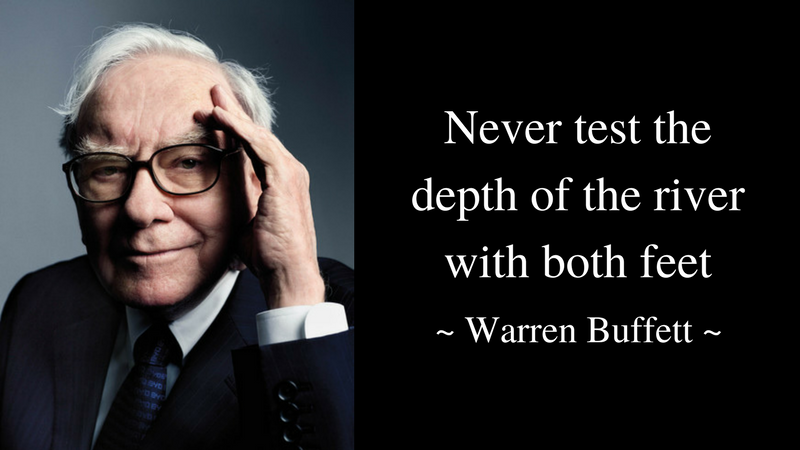NSW state manager, Jon Sheridan pens his thoughts on Warren Buffett's recent Berkshire Hathaway shareholder letter. Buffett doesn't say it, but he knows something investors should all know about volatile assets

As usual, Warren Buffett's annual letter to shareholders was a great read.
It's always interesting to read between the lines and try to understand what drives his (and Berkshire's) processes for capital allocation.
Over the years, there's been a huge amount of commentary written about the themes regarding moats, buybacks and dividends to name just a few.
What struck me from his most recent letter was the commentary around the famous bet he made with Protégé, a fund of hedge funds, about whether an investor would be better off with the traditional actively managed hedge fund investment (and the associated fees) or a passive S&P500 exposure.
Each party put down US$500,000 on the outcome, invested into US Treasuries (technically $318,250 into a zero coupon bond maturing with a value of $500,000, with an initial yield of 4.56%).
About halfway through the bet, the bonds were yielding an admittedly miniscule 0.88%, and so both parties agreed to sell the bonds and invest the proceeds into Berkshire common stock, on the premise that it was much more likely to return more than the bonds.
Now this is where it gets interesting...
Buffet was loud in his declamation that the bonds represented such a poor investment that Berkshire stock would inevitably provide a superior return. He ended up being right with the amount payable to the Girls Inc. charity in Omaha being nearly 2.3x the $1m initially guaranteed by the bond position.
Fascinatingly, he also personally guaranteed the minimum $1m to be paid to the charity in case the shares were worth less than that amount on the day the bet was decided. Why would he do this when he was so confident that the opposite would happen?
Well he answered this question later on in the letter when he commented on the corrections in the Berkshire share price since he has been running it, in this illuminating table:
| Period | High | Low | Percentage decrease |
| March 1973-January 1975 | 93 | 38 | (59.1%) |
| 10/2/87-10/27/87 | 4,250 | 2,675 | (37.1%) |
| 6/19/98-3/10/2000 | 80,900 | 41,300 | (48.9%) |
| 9/19/08-3/5/09 | 147,000 | 72,400 | (50.7%) |
Note: dates format is MM/DD/YYYY
So in four short historical periods, the Berkshire share price fell by at least 37.1%.
This is the nub and the reason Warren guaranteed the amount to the charity: Equity markets suffer large short term losses that aren't necessarily explained by fundamentals. Why would a company of this quality, which has performed so well and so consistently, ever suffer a fall in its value of these magnitudes?
The bonds may have yielded a paltry amount, but the securities would - and I am 100% confident they would (as is the rest of the world hence the US Treasury market being the global risk free basis) - have paid off the agreed amount on the agreed date, whereas the equity return had the potential to be 37.1% lower or even more, than expected.
Sure it could also have been much higher which is what actually eventuated, but that misses the point.
The point is that there was a liability that needed to be settled at a point in time in the future, and to fulfil that, there needed to be a guarantee. Neither party wanted to let down the promise to a charity, also explaining why bonds are perfect for not-for-profits.
Equities do not provide that certainty, and particularly in the case of the Berkshire shares, also do not provide any income along the way.
Dividends, before you retort, are not guaranteed. Ask BHP, ANZ and Telstra shareholders in recent times.
This is why Warren is right (shares have historically returned more than bonds), but also wrong because bonds provide a much higher level of confidence around security of income and return of capital.
Life bites us in the posterior at the wrong times – just when we don't want to sell things. That is when you need assets that provide a high level of capital security so you can confidently plan for your liabilities, which means your lifestyle. Life costs money every day and that is a guaranteed liability.
As the requirement for income security goes up, the reliance on volatile assets should go down.
Even if he doesn't say it, Warren understands this, hence the guarantee.
You should too.